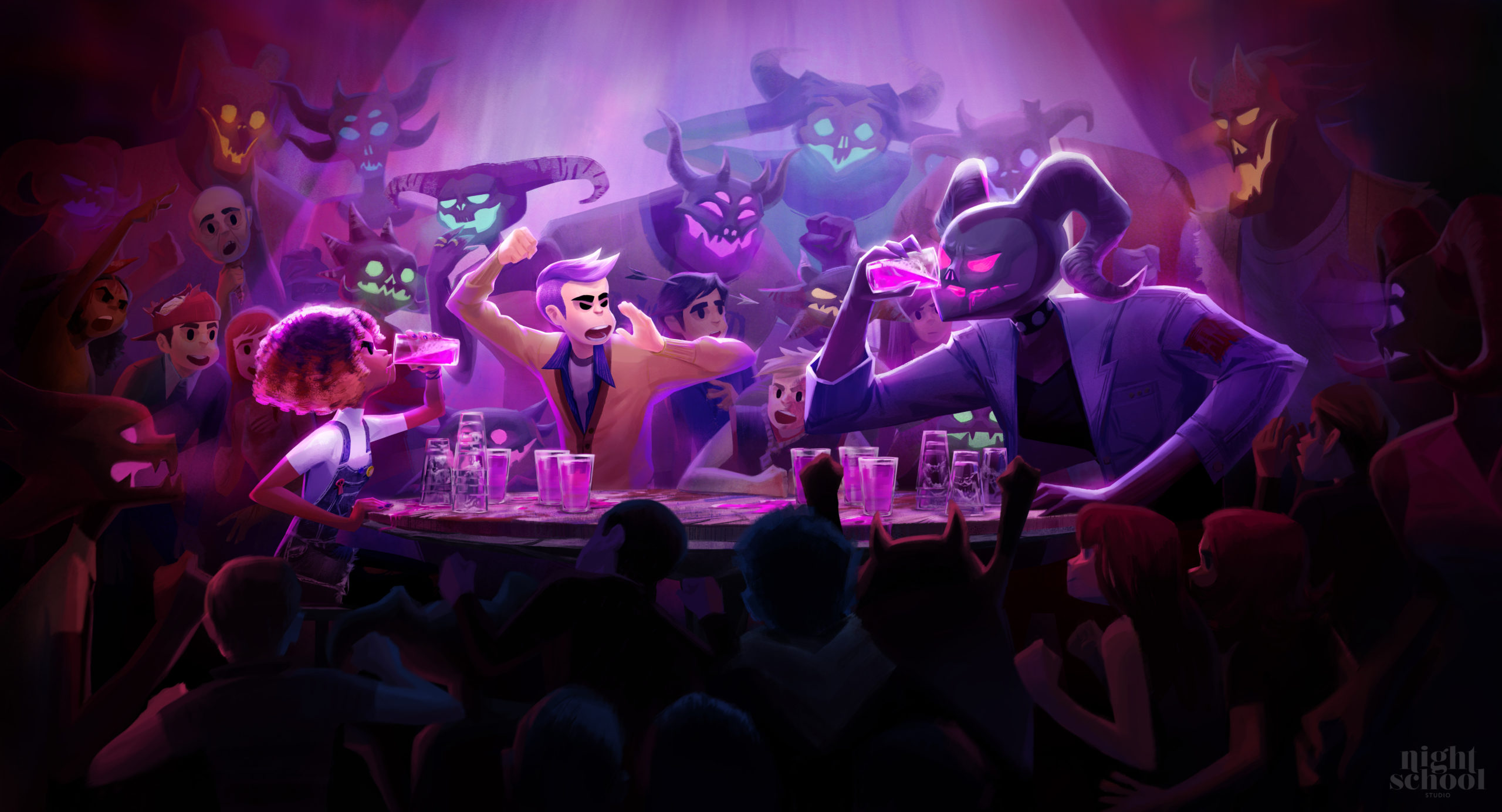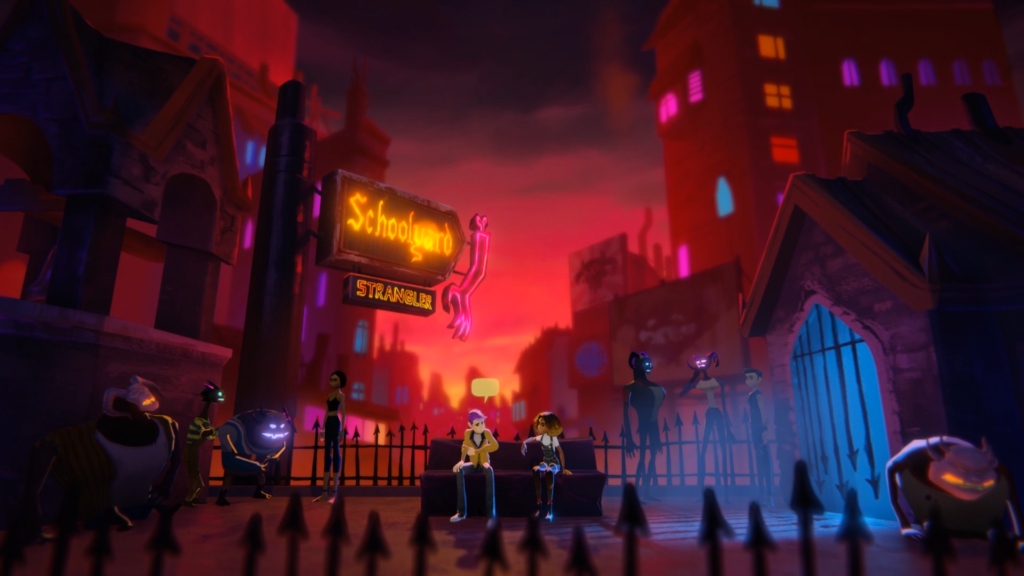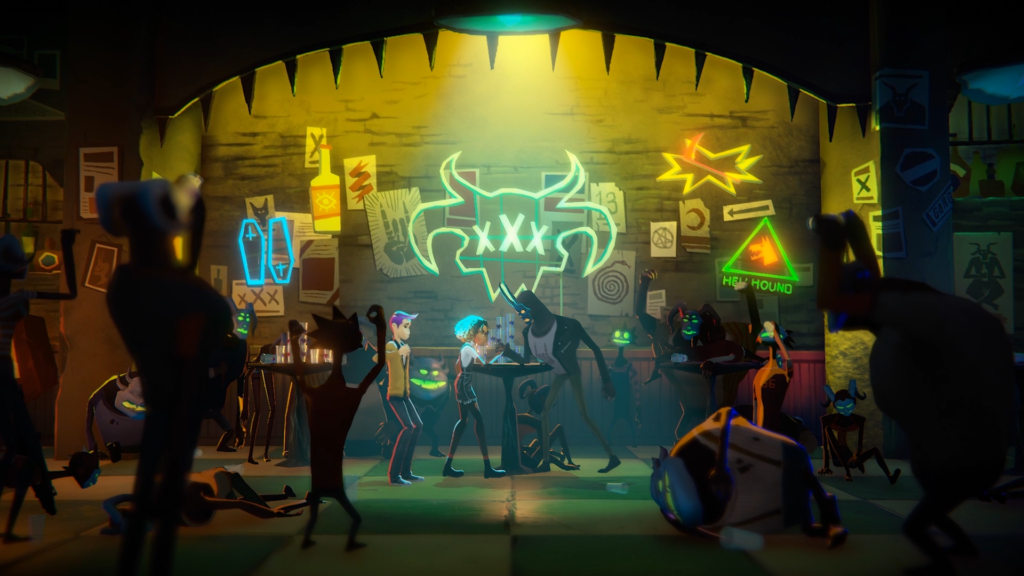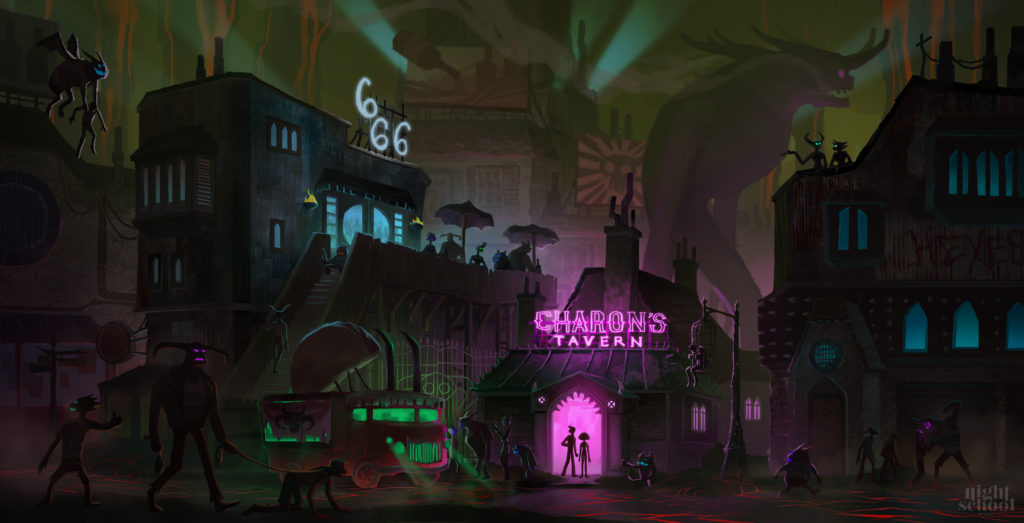
Afterparty: “Comfortably Enjoy the Silence”
Caitlin,
Facing the end of a friendship is distressing, and I’ve had to go through this a number of times in just the past couple of years. But the tough pill for me to swallow is the fact that sometimes, what one person needs and what the other person is going through just don’t line up. Enter, Milo and Lola in Afterparty.
To me, the source of tension in this game wasn’t the two of them trying to leave Hell, but rather all that was previously unsaid, now slowly seeping out through conversation. Even (and especially) in the closest of friendships, there are things taken for granted, things that are assumed or implied rather than spoken, words that will never leave your mouth due to some sort of anxiety or discomfort.
In a lot of cases, silence can be golden; sometimes I appreciate sitting down with a close friend without a word. There aren’t any requirements of running jokes or banter or regular profound discussions needed in order to be best friends. Sometimes, the most fun thing to do with someone you know so well is to just enjoy their company. With one of my best friends since childhood, it might not be overt to observers that we’re so close, as we behave quite differently, but we have such a solid understanding of each other from our long history that just our presence together can be a source of joy.

Left unchecked, however, silence can be used as an avoidance tactic in relationships, and I felt that this type of avoidance led to the tension between Milo and Lola in their emotional journey through the underworld. The more-reserved Milo had plans to stay in town after school, while Lola would “try something new” by moving away. It isn’t something discussed at length for most of the story, with the pair mostly being a united front—and when it is, conflict erupts.
As a person who doesn’t like to be confrontational, I have previously employed these avoidance tactics with friends as a way to stay blissfully ignorant of harsh realities. When I’m with friends, I prefer to stay in the moment, enjoy the silence and proximity, free from anxiety about the future. Silence isn’t sustainable—it shouldn’t be used as an excuse to circumvent pressing and growing matters, but rather it is something earned when friends come to an understanding.
I’ve lost friendships simply because we couldn’t talk things out. One friend permanently burned their bridge with me months after a major argument; I thought that time would heal all wounds, but the silence for months in between made it all the worse. Then there was someone I thought would be the love for the rest of my life–we stayed optimistic while we remained in a long-distance relationship, but the reluctance to ever discuss whether or not our future was truly with each other led to an abrupt split. And then there was the friend I depended too much on for support post-breakup, but this eventually defined our friendship for months, and when it finally came to light, there was an explosive falling out.

Everyone has a right to confine their thoughts and feelings to themselves, but at the same time, one has to make sure that they’re respecting the people in their lives. We all have roles to play in each other’s lives, but “you can’t spend your whole life as a tool,” as Milo and Lola reminds us. I take that quote as a way of saying that you can’t pick and choose what parts and aspects you want from your friends to utilize for your own emotional support. You need to respect their individuality, their desires, and their space.
It is never an easy task to figure out where you and a best friend stand, and it is understandably frightening to think that you’ll stand apart from each other after all is said and done. Some things sit for so long that it is seemingly impossible to verbalize your feelings—but those conversations should happen sooner than later for a relationship to remain healthy.
Part of what makes Afterparty so interesting is the permutations and branches that Milo and Lola’s relationship can have, and as a result, players can see themselves in their own friendships through the story, no matter how different their experiences may be from each other. I know that you experienced a very different ending than I did, Caitlin, yet both of us still found that our respective endings resonated with us immensely.

I understand that envy that you feel for those who witnessed a reconciliation between Milo and Lola, with the characters getting that “fresh start” from talking things through and reaching that place of understanding. For every close friend I reached that point with, I’ve lost a different friend from miscommunication or otherwise, with those cases serving as lessons in navigating through my other relationships afterward. Of course, I still think back to those friends who have faded from my life. Sometimes I’d reminiscence about our time together, but for the most part, I would instead ruminate and regret how we let things end.
The ending I received was very analogous to what I’ve gone through with a handful of my best friends—a candid acknowledgment that being apart from each other is okay while maintaining a healthy and loving long-distance friendship. We respect each other’s individuality, and because of that, even the short amount of time we check on each other or meet up becomes more valuable because of that strong shared understanding, and to see Milo and Lola demonstrate that in my ending was particularly warming.
It is hard to say those previously unsaid things to people you love, but they should be said because you love them. Only afterward can silence truly be comforting.





